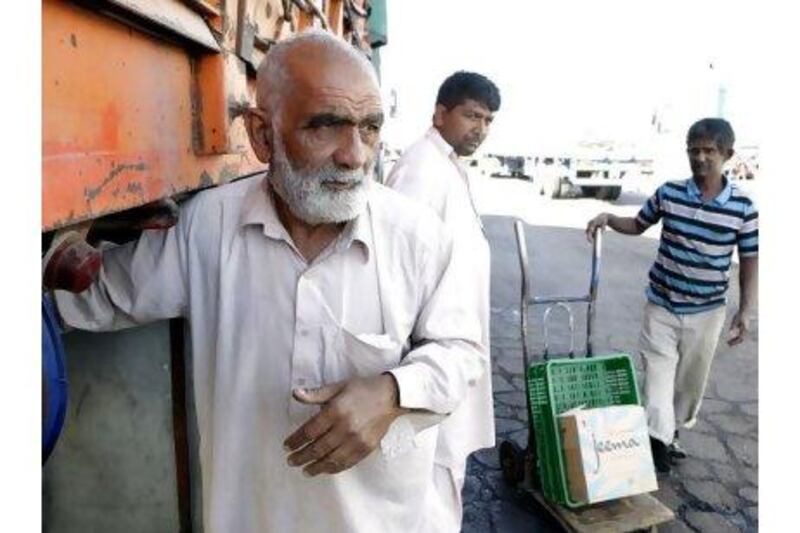ABU DHABI // Lives will be saved by the construction of a lit, three-lane motorway from the capital to the Saudi Arabian border crossing, Civil Defence officials say.
Last month's announcement by Abu Dhabi's Executive Council that the emirate will build a Dh10 billion Mafraq-Ghweifat motorway puts in motion a plan that had been stalled since last spring.
The new motorway would run parallel to the current E-11 motorway, which has two lanes each way and is largely unlit.
Civil Defence officials from Al Gharbia, the country's western region, say stricter police enforcement on the existing road and construction of the new road are urgently required to save lives.
"We can't get to victims," said Salem Mohammed Al Hammadi, an officer from Mirfa and former head of the traffic police in the Ruwais district.
"When lorries pass each other, it's a problem for the small cars. At night there are so many trucks that the traffic can't move. With three lanes this would not be a problem."
Officials said the new motorway should have more Civil Defence stations and frequent turns so that they could reach crash sites more quickly.
The Mirfa Civil Defence station is responsible for an area 70 kilometres to the east and 70km to the west of Mirfa, which has a population estimated at 20,000.
The shortage of turns on the motorway means emergency services are often forced to drive an extra 10 to 20km before they can reach victims.
"The turns should be closer together," said Obaid Khalfan Al Zaabi, a fireman from Mirfa.
"Yesterday a car caught fire. The car was destroyed. In these cases it can take 35, 40 minutes to reach the car and then it's too late. No one died yesterday but many have before."
The car was 60km from Mirfa.
Civil Defence officials would also like to see speed limits more strictly enforced. Too often drivers memorise the location of radar cameras or slam on the brakes when they see them.
Ziad Addout, who travels from Dubai to Ruwais up to four times a week, said he found drivers to be more aggressive after he crossed the border into Abu Dhabi. He would like to see more police enforcement across Al Gharbia.
"When you reach Abu Dhabi, the driving is different from Dubai," said Mr Addout, 36. "Always you see some accident."
He said he had twice seen blazing cars that had rolled down the side of the Mafraq-Ghweifat motorway.
Heavy industrial traffic, unlit roads and tailgating are the biggest problems.
"It's dangerous, especially at night because there are no lights, two lanes and trucks," Mr Addout said. "Sometimes they use both lanes so when you drive at 140kph it's suddenly in front of you from nowhere."
"With these speeds, anyone inside the car will die," said Mr Al Hammadi. "A lot of people are afraid."
Civil Defence officials have done a great deal of community work and offered lessons to teach safe road practices since the death of a woman and her child last year.






